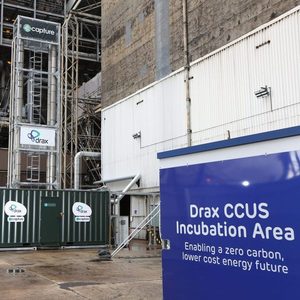UK to achieve net-zero carbon emissions by 2050




PHOTO: Drax Group plc
June 13, 2019
BY Erin Voegele
Advertisement
Advertisement
Related Stories
Moisture in wood and biomass operations impacts product as well as equipment, energy usage, production efficiency, downtime and more.
A bioenergy with carbon capture and storage (BECCS) project under development in Sweden by Stockholm Energi was awarded planning approval on March 28 by the country’s Land and Environmental Court.
Waste-to-energy provider Covanta has announced the next milestone in its strategic evolution as a pioneering sustainable waste solutions company with its new identity: Reworld.
The U.S. DOE has opened a funding opportunity making up to $25 million available to support clean energy technology deployment on Tribal lands. Projects fueled by biomass, biogas, RNG or renewable hydrogen are among those eligible for the funding.
Solarig on April 3 announced plans to develop a commercial scale biorefinery in Spain that will produce sustainable aviation fuel (SAF) from renewable natural gas (RNG) and renewable electricity.





